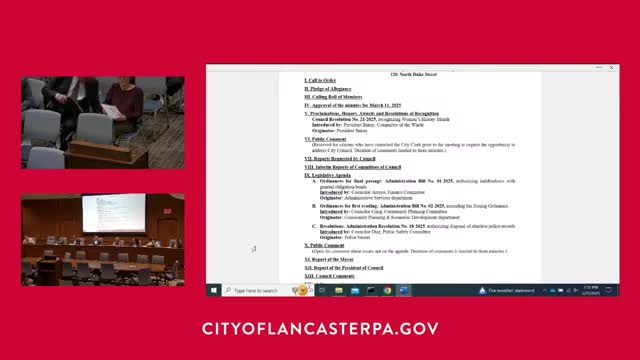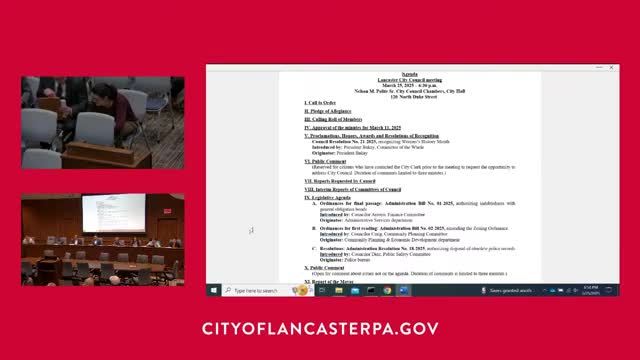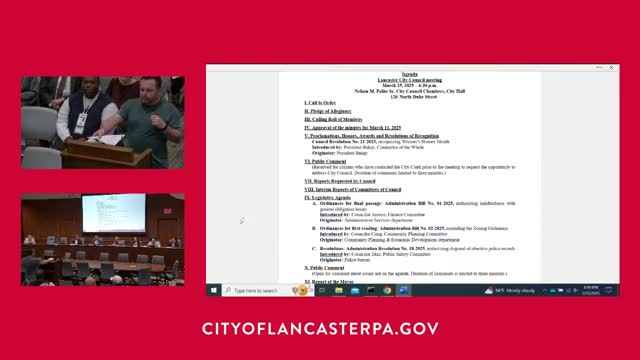Article not found
This article is no longer available. But don't worry—we've gathered other articles that discuss the same topic.

Council tables resolution on disposal of obsolete police records after public outcry; report requested for April

Lancaster City council approves amended $41.095 million general-obligation bond; projects and debt impacts outlined

